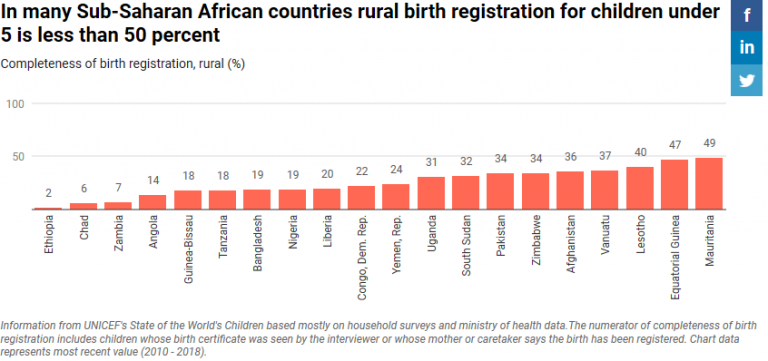This blog was originally published by the World Bank here.
Birth registration refers to the permanent and official recording of a child’s existence by a country’s administration or government. In many economies in Sub Saharan Africa, as well as some countries in South Asia, birth registration in rural areas is very low. In these countries, and a few others, registration in urban areas was also less than 50 percent.
The Global Civil Registration and Vital Statistics (CRVS) Scaling Up Investment Plan, developed by the World Bank and the World Health Organization in collaboration with other institutions, aims to achieve universal civil registration of births, deaths, marriages, and other vital events, including reporting cause of death, and access to legal proof of registration for all individuals by 2030.
View the interactive Completeness of birth registration graphs here.
